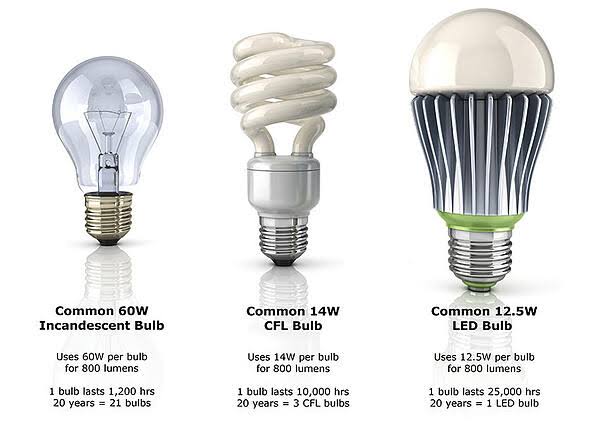The largest barrier to energy conservation for most faith-based groups is that most places of worship are only filled 20% to 30% of the time. Here are some strategies for setting up your energy plan to coincide with your neighborhood’s timetable, benefiting your residents and your financial situation.
1. Put programmable thermostats to use
According to ENERGY STAR, switching from a manual thermostat to a programmed one can save you roughly 8% annually.
You may regulate the thermostat to maintain a pleasant temperature when the facility is filled and use less energy during non-peak hours rather than depending on your employees and interns to remember to adjust the temperature before they leave the office.
2. Reduce occupied hours at the place of worship by combining events and changing schedules
Can multiple groups and activities occur simultaneously in various locations across the building? Can you switch the time of day the cleaning crews come in? Because it enables you to cut temperature and lighting consumption over time, it’s a popular trend in many work settings.
To make use of natural lighting, think about relocating evening activities to earlier in the day or changing morning services to a later time of day.
3. Utilize sleep mode
Encourage your workers to put their computers in sleep mode. This will ensure that their computer enters a power-saving mode if they leave their workstations for any period of time.
You may take further actions to automatically lower energy use in addition to observing occupancy patterns. For instance:
- People may stay cool without using the air conditioner by using ceiling fans.
- A hot water heater that is available when you need it might provide hot water more effectively than a tank-style heater.
- Switch out outdated appliances with energy-efficient models.
4. Turn off the lights
When a room is empty, always turn out the lights. Signs for reminders might also be placed next to the light switches to encourage workers and community people to take the initiative in this.
5. Add motion detectors to bathrooms
Use motion light sensors to automate the “lights out” rule, taking it a step further. Close to 30 minutes at a time can be programmed for them to remain on.
Deciding to Heat Your Worship Space Using Natural Gas
Natural gas is often the ideal option for your worship space’s heating source for the reasons listed:
Lower Operating Expenses
Using gas will lower your total operating costs. Propane and electricity are both significantly outperformed by gas, which is also more cost-effective and cost-stable.
Dependable Power Access
Natural gas access often continues uninterrupted in the face of blackouts, hurricanes, and other difficulties, enabling your worship venue to remain open regardless of the current circumstance.
A Clean Fuel Source
The combustion of natural gas produces a clean and balanced form of energy with no residues, toxic fumes, or other undesirable consequences. It is a virtually ideal kind of combustion.
You should take into account the cost as well as the fuel’s energy efficiency when choosing whether to use electricity, natural gas, oil, or propane to heat your place of worship.
Heating the Place of Worship Using Electricity
The only heating alternative that is accessible to everyone is electricity. Here are several things to keep in mind while using electric heating to warm your place of worship.
- 2 in-1 heating and air conditioning system — Modern heat pumps may offer both pressured air heating and central air conditioning in a single system.
- Ductless mini-splits can provide you with the benefits of high-efficiency heating and cooling without any of the extensive construction needed to install ductwork into your place of worship.
Read Also: How to Propose the Question in 2022
If you have a room in your building that needs to be heated (or cooled) but does not already have ductwork, these units can provide you with the benefits of improved heating and cooling.
- Efficiencies – Though current types of electric heat pumps are gaining good efficiency scores, natural gas furnaces and boilers normally attain the highest energy efficiency.
- Expensive – Just like other fuel sources, the cost of electricity can change seasonally. By choosing a different electrical source each year, you may lock in your pricing and shield your worship space from this unpredictability.
What Advantages Do Independent Suppliers Offer?
It’s time for you to take charge if you’re sick of paying high energy costs or if you can’t tolerate unexpected expenses anymore.
You may easily cut your monthly utility costs by selecting a supplier that is independent and unrelated to your utility provider.
The personnel of religious institutions now have the freedom to select the energy provider they want, thanks to the deregulation of natural gas and electricity.
Instead of paying a single fee, you may shop around and discover an energy provider with a reasonable cost that fits your budget. Are you prepared to shop for energy? In such a case, visit Utility Bidder.
What kinds of businesses stand to gain from choosing their energy supplier carefully?
Almost every kind of business may gain from using an energy provider to supply its natural gas and/or electricity needs.
There are considerable savings to be made by anyone, albeit the exact amount depends on your individual energy use and usage profile.
Utility Bidder has assisted huge corporations, enterprises, local small businesses, and religious communities in saving thousands of dollars in utility costs.
Regardless of the size of your business, switching your energy supplier can help you save a significant amount of money. The certainty of locking in a price for a lengthy period of time, however, may be even more crucial.
The staff of the worship center is aware that the future financial stability of their religious community may very likely be threatened by skyrocketing energy prices. Thus fixing a low energy rate is an essential first step in doing so.
What criteria should we use to select an energy provider?
As was previously said, there are a variety of alternatives to take into account when making energy purchases for your place of worship.
All of these choices will be presented to you by an experienced energy provider, who will also assist you in assessing them in light of the particular requirements of your place of worship.
Additionally, check sure the business you are dealing with will be around after your contract expires and is not a fly-by-night operation.
You wouldn’t like to be left in the dark if your energy provider ends up being one of the numerous businesses that come and go in this market. Choose a business that has been in operation for some time, preferably for ten years or more.
In order to reap the rewards of a one-to-one connection for years to come, search for a business that possesses the full package: one that is dependable, stable, respectable, and with a solid asset basis.



